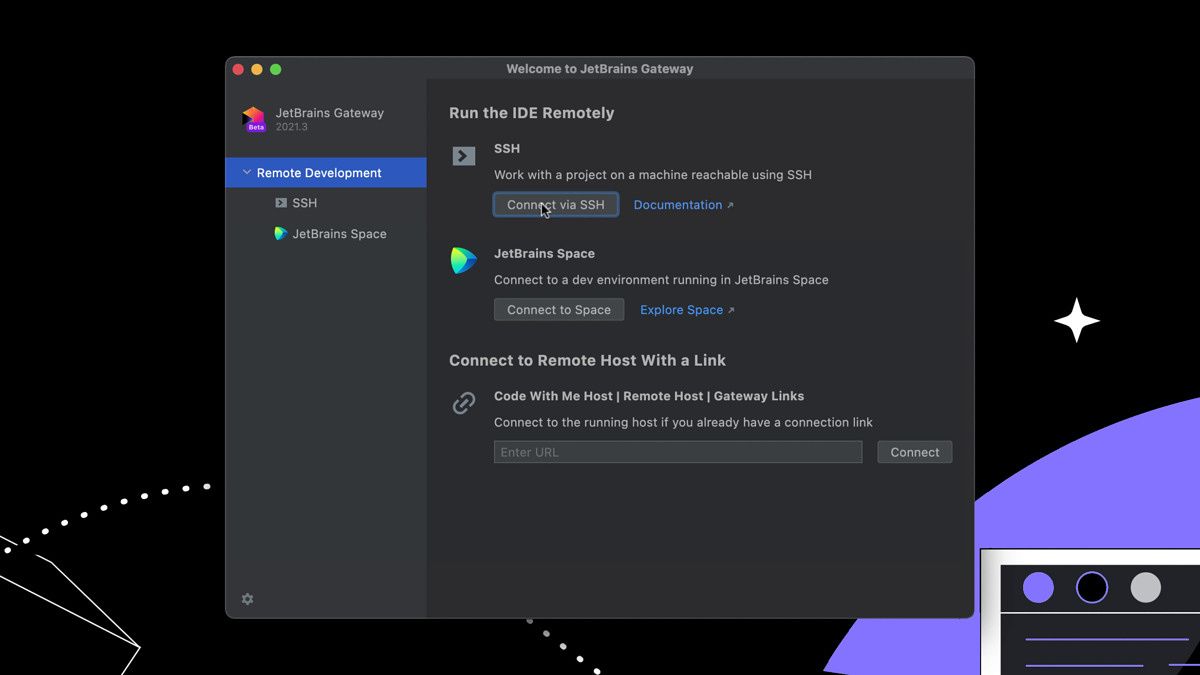JetBrains produces some of the most popular integrated development environments (IDEs) around for creating software with Java, PHP, Kotlin, and other programming languages. JetBrains IntelliJ even serves as the foundation for Android Studio, the official IDE from Google for developing Android applications and games. Now JetBrains is working on a new feature for its IDEs that will make remote development significantly easier.
JetBrains announced a new remote development feature for its IDEs on Monday, which is included in versions 2021.3 of IntelliJ IDEA Ultimate, PyCharm Professional, GoLand, PhpStorm, and RubyMine. Instead of setting up the entire environment on each computer for development (such as project dependencies, compilers, and so on), JetBrains can now run on a remote server as a backend service, and anyone can connect to it with a compatible JetBrains IDE on their computer. While each PC will still be running the a full IDE — this isn't a simple remote desktop session — all project files, compiling, and other processor-intensive tasks will be handled by the remote server.
\r\nhttps://www.youtube.com/watch?v=8qG_BK11nLg\r\n
JetBrains said in its blog post, "the JetBrains Client runs locally and provides the user interface for the IDE backend. It’s based on the IntelliJ Platform and feels just like a full IntelliJ-based IDE – it has the same editor, code completion, navigation, inspections, and refactoring tools as a local IDE, but all of the files are hosted remotely and all of the language processing is done on the remote server."
The new functionality is similar to the remote development features in Visual Studio Code, which allows Visual Studio Code to connect to a remote instance with the project code, debugger, and extensions. For example, the feature is popular with people using the Windows Subsystem for Linux, because the code and dependencies can be in the Linux subsystem while the actual VS Code session runs on the host Windows operating system.
Remote development is great for anyone who doesn't want to set up their software projects on several computers, but might have a server or PC that can run continuously. Here's hoping Google can integrate this into a future Android Studio update.

